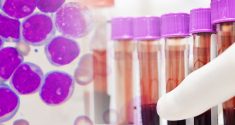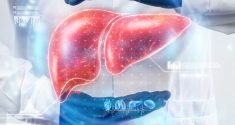Scientists funded by Cancer Research UK have discovered dementia-like behavior in pancreatic cells that are at risk of becoming cancerous. The findings provide clues that could help in the treatment and prevention of pancreatic cancer, a difficult-to-treat disease that is responsible for 6,900 deaths in the UK each year. Approximately 495,000 new cases are diagnosed worldwide each year, making pancreatic cancer one of the top 10 most common cancers. The research findings were published in the journal Developmental Cell and funded by Cancer Research UK, with additional support from Wellcome, the Medical Research Council, and the Biotechnology and Biological Sciences Research Council.
Chronobiology and Autophagy
Chronobiology and autophagy are closely linked, as the circadian rhythm (i.e., our “internal clock”) controls important processes of cell cleansing and regeneration such as autophagy. Here is an overview of the most important connections: Autophagy activity follows a circadian pattern. In many tissues (e.g., liver, brain), autophagy is particularly active at certain times of the day. Genes such as CLOCK, BMAL1, PER, and CRY not only control the internal clock, but also regulate autophagy-related genes. This rhythm determines when the cell breaks down waste or recovers. A disruption of the circadian clock inhibits autophagy, which can lead to aging processes, inflammation, and disease in the long term.
A Disrupted Recycling Process can Promote Pancreatic Cancer
Researchers at the Cancer Research UK Scotland Centre studied pancreatic cells from mice over a long period of time to find out why healthy cells turn into cancer cells. They discovered that pancreatic cells that are at risk of cancer (known as precancerous cells) develop errors in the cell’s recycling process (known as “autophagy”). In precancerous cells, the researchers found that excess “problem protein” molecules clump together—a behavior seen in neurological diseases such as dementia. The researchers also found similar clumping in human pancreatic samples, suggesting that this happens during the development of pancreatic cancer. Professor Simon Wilkinson, Senior Fellow at Cancer Research UK at the University of Edinburgh’s Institute for Genetics and Cancer, said: “Our research shows the potential role that autophagy disorders play in the development of pancreatic cancer. Although we are still in the early stages, we may be able to learn from research into other diseases involving protein clumping, such as dementia, to better understand and prevent this aggressive form of cancer.”
Although survival rates for many cancers have improved in recent decades, this is not the case for pancreatic cancer. This is partly because it is often diagnosed at a late stage, when treatment options are limited. To address this problem, the researchers wanted to learn more about what causes pancreatic cells to turn into cancer cells. Several types of cancer, including pancreatic cancer, are linked to a faulty mutation in a gene called KRAS, but scientists are increasingly recognizing that genetic changes are not the whole story. One of the ways cells keep humans healthy is by breaking down excess molecules they no longer need through a recycling process called autophagy.
Autophagy is particularly important in the pancreas to control the levels of digestive proteins and hormones that the pancreas produces to aid in the digestion of food. Scientists have studied autophagy extensively over many years and are now learning about its key role in diseases such as cancer. In some cases, cancer cells can become “addicted” to autophagy and hijack the recycling process to divide and grow faster. This research suggests that the combined effect of the defective KRAS gene and disrupted autophagy may promote the development of pancreatic cancer. Researchers want to study these processes more closely to find out whether they can help predict or possibly reverse the onset of pancreatic cancer, and whether factors such as age, gender, or diet play a role. Although further research is needed, these findings could provide important clues to better understanding how pancreatic cancer develops. Research into pancreatic cancer is one of the top priorities of Cancer Research UK.







